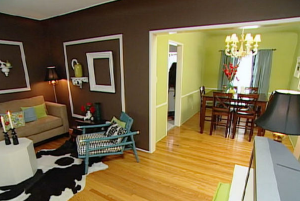Posted by Teresa on December 19, 2012 under Landlord and Tenant FAQs, Landlord Tips | 
 In most states, it is the landlord’s responsibility to see that repairs are made within a reasonable time. But have you had tenants offer to make their own repairs? At first, it might seem like a reasonable idea. Your handy tenant offers to paint, repair the dishwasher or replace broken glass in your rental unit. In exchange, you offer a rent reduction. You experience fewer repair hassles and out-of-pocket expenses, and he or she saves some money. Everyone’s happy and nothing could go wrong, right?
In most states, it is the landlord’s responsibility to see that repairs are made within a reasonable time. But have you had tenants offer to make their own repairs? At first, it might seem like a reasonable idea. Your handy tenant offers to paint, repair the dishwasher or replace broken glass in your rental unit. In exchange, you offer a rent reduction. You experience fewer repair hassles and out-of-pocket expenses, and he or she saves some money. Everyone’s happy and nothing could go wrong, right?
As with most all-or-nothing statements, this one is definitely wrong. There are so many possible problems posed by allowing well-meaning tenants to perform repairs.
First of all, unless they do it for a living, even the handiest people don’t come close to the quality offered by a professional. And in many cases, they can cause more damage than they fix. One landlord reported that a simple dishwasher repair was performed incorrectly, resulting in a leak that went undetected for weeks, causing extensive damage to beams and subflooring.
Then, there is the issue of who pays for what. Does the tenant cover parts and labor, or will the landlord be expected to pick up the supplies and parts? If the tenant buys the paintbrushes, and gets a rent reduction, does the landlord then own the paintbrushes? Getting everything in writing might seem like a hassle for such a small job, but you can probably imagine how not doing so could make it much messier.
Finally, landlords must consider the potential for tenant injuries. Few tenants are licensed and insured on their own, so who is responsible for any injuries that occur? One landlord we know faced the potential for thousands of dollars in damages when her tenant replaced broken glass and was seriously injured in the process. The landlord’s liability policy did not cover the losses, since the tenant was not an employee. Eventually, the case was settled, but not without a great deal of time, worry and expense on the landlord’s part.
When you’re running a business, allowing non-professionals to perform work on your building is not the best approach. The potential for problems exists throughout the process, and the end result is rarely what you expected. The same applies to the business of landlording. Think twice before you allow a tenant to make repairs!
Posted by Teresa on December 5, 2012 under Landlord Tips | 
 The rental market is hot in many areas, and vacancies are low. Many landlords are seeing more applicants for every vacant rental than they’re used to. When you have multiple tenant applicants, you can be picky about to whom you choose to rent your apartment or single-family rental home. Why rent to a problem tenant, when you have a better choice?
The rental market is hot in many areas, and vacancies are low. Many landlords are seeing more applicants for every vacant rental than they’re used to. When you have multiple tenant applicants, you can be picky about to whom you choose to rent your apartment or single-family rental home. Why rent to a problem tenant, when you have a better choice?
That’s where tenant screening comes in. You don’t have to settle for less than an ideal tenant—choose those with acceptable credit history, no criminal record and enough income to meet your standards.
Here are some dos and don’ts for tenant screening that you may find helpful:
• Do have the applicant pay the tenant screening fee by including it in the application fee.
• Don’t neglect to obtain the applicant’s signature on a separate authorization page.
• Do treat every applicant equally, by screening each one and using the same process. You could be subject to charges of discrimination if you only screen and reject certain applicants.
• Don’t forget that you have the option to check an applicant’s sex offender status, social security number, address, name, and eviction history, along with standard criminal background and credit checks.
• Do check out your screening service. Make sure it has a good reputation, and is a Better Business Bureau Accredited Business. Be sure they comply with the federal Fair Credit Reporting Act and are an FCRA-Compliant Consumer Reporting Agency.
• Don’t share information you learn with anyone.
• Don’t fall victim to any applicant’s hard-luck story. Stick to your procedures and award leases based on ability to pay the rent, acceptable credit and rental history, and clean background check.
• Do advise applicants in writing if you reject them based on credit checks. Provide a copy of the credit report.
• Don’t discriminate against applicants on the basis of family status, national origin, gender, race, religion or disability.
• Do verify employment and income. Require pay stubs, bank statements or income tax returns.
Tenant screening doesn’t have to be an overwhelming process for landlords. Stick to these dos and don’ts and feel free to contact E-Renter with any questions!
Posted by Teresa on November 30, 2012 under Housing Trends, Landlord and Tenant FAQs | 
 Do you furnish your rental properties or have you ever considered it? What are the advantages and disadvantages? We’ve looked around and found that while the vast majority of landlords rent their properties without furnishings, some find that doing so gives them an advantage for a niche that works.
Do you furnish your rental properties or have you ever considered it? What are the advantages and disadvantages? We’ve looked around and found that while the vast majority of landlords rent their properties without furnishings, some find that doing so gives them an advantage for a niche that works.
Advantages of furnished rentals:
• Higher rent: In some areas, furnishing a rental property can as much as double the rent.
• Higher-end tenant: With the right location, amenities and furnishings, you could attract a higher-end tenant, such as relocating executives or long-term vacationers with money to spend on a nice place.
• You’re covered: Security deposits don’t usually include the value of the furnishings (that would be cost prohibitive for most tenants), but in case anything is damaged or needs to be replaced, your insurance policy should cover it. Check with your agent.
Disadvantages of furnished rentals:
• More headaches in the maintenance department. You’ll need to add cleaning, repairing and replacing furniture to your maintenance list.
• Inventory troubles: Documenting the condition of furnishings at move in and move out times will be added work. Consider that many furnished rentals also include dishes, kitchen tools and silverware, and you can see that keeping inventory could be tedious. More stuff means more things to go missing, too.
• Short-term tenants. Folks who are looking for furnished apartments are not usually long-term lease signers. They’re often starting a new job in a new place, starting over in their personal lives, or in a temporary living situation due to an emergency.
As with anything, if you invest too little in your furnishings, you’ll probably have to replace them more often. On the other hand, it doesn’t make sense to spend a lot on furniture, electronics and lighting that could be subject to abuse. Think about your target market. If you’re going for lower-income tenants, you won’t be able to afford expensive furnishings. If you’re targeting executive, vacation or high-end tenants, they will expect nice furnishings—and be willing to pay for them.
If you’d like to gauge the demand for furnished rentals in your area, talk to local real estate agents. They often specialize in corporate relocations, or could refer tenants who are buying in the area but haven’t found the right property yet.
Start your tenant relationship off right by knowing who you’re leasing to. Protect your rental property and assets with tenant background checks. Proper tenant screening will ensure you are leasing to the best possible tenants.
Posted by Teresa on November 17, 2012 under Landlord and Tenant FAQs, Landlord Tips | 
 In a multifamily rental property, conflicts can arise over seemingly mundane issues. Parking is one of them. When parking is limited, and tenants are restricted to a certain number of spaces, sparks can fly when they think “their” space is being trespassed upon.
In a multifamily rental property, conflicts can arise over seemingly mundane issues. Parking is one of them. When parking is limited, and tenants are restricted to a certain number of spaces, sparks can fly when they think “their” space is being trespassed upon.
Here are some helpful tips to keep parking disputes from causing big problems for you or your rental property manager:
- When enforcing your parking policy, remember that your tenants don’t own the spot or spots that go with their unit. You do.
- Depending on availability, limit each unit to one or two parking spaces. Leave the rest open for visitors and potential new tenants.
- You can require that a tenant household’s additional vehicles park in visitor spaces or on public streets surrounding the property.
- Don’t allow tenants to “trade” spaces among themselves. For example, if Unit A has one car and two assigned spaces, and Unit B has three cars and two assigned spaces, it might seem reasonable to allow B to use A’s extra space. But this can get complicated. Other tenants will see the three cars and wonder why they are limited to two. When tenant A moves out, the next tenant may need both spaces. People tend to think something “belongs” to them after they use it for a while. And if tenants have disagreements, the parking spots could become a contentious issue. You don’t want to give tenants reasons to disagree.
- Consider having inexpensive decals made for residents to affix to their bumpers, so you can easily identify cars the do and do not belong on your property.
- Be sure to enforce rules against parking in front of dumpsters, along fire lanes and in handicapped spaces. It’s a good idea to give first-time violators a written warning. After that, tow any vehicles that are parked illegally, at the owner’s expense.
- You are entitled to prohibit non-operating vehicles from your property, along with oversize vehicles, recreational vehicles, boats, trailers, etc.
Set clear policies and include them with your lease. Have tenants sign off or initial the page to prove that they have read and understand the policy.
Start your tenant relationship off right by knowing who you’re leasing to. Protect your rental property and assets with tenant background checks. Proper tenant screening will ensure you are leasing to the best possible tenants.
Posted by Teresa on October 30, 2012 under Landlord Tips, Lease and Rental Agreements, Legal | 

Landlords and property managers have the right to enter their properties, with proper notice to their tenants. Whether it’s for routine maintenance work, pest treatments or safety inspections, it’s not only necessary to occasionally enter a tenant’s unit, but it’s a good idea to do so. You need to know what’s going on in your properties.
During these routine inspections, landlords and property managers sometimes see things that tenants don’t intend for you to see, such as:
- Ashtrays, cigarette butts and lighters.
- Pet supplies, like food dishes and litter boxes.
- Drug paraphernalia like pipes, lighters and syringes.
- Illegal drugs, such as marijuana or cocaine.
- Evidence of drug manufacturing.
- Signs of a business being run out of the unit.
What can (and should) you do when this happens? Can you evict the tenant? If the occupant is otherwise a good tenant, should you ignore it? First, it’s always important to be familiar with your state’s laws regarding grounds for eviction. But if any of the activity you have witnessed violates the terms of your lease, you probably do have grounds for eviction.
If you’d rather not go that route, then it’s possible to wait until lease renewal time comes around, and inform the tenant that the lease will not be renewed. Of course, you’ll need to provide proper notice, according to the terms of the lease.
Reasons to Consider Eviction or Non-Renewal of a Lease
- Liability: Landlords can be liable for criminal activity that occurs on their properties—even if they are not aware of it. Landlords can be liable for injuries that occur as a result of illegal activity. Landlords can be liable for injuries caused by a tenant’s pet—even if they are not aware of the pet. Laws vary from state to state, but why take chances?
- Health: Smoking in units where it is not allowed can affect other residents, including children. Second-hand smoke carries chemicals and carcinogens through vents, doorways and windows. In addition, cigarettes are the cause of accidental fires.
- Safety: Each year, almost 1,000 smokers and non-smokers are killed in fires caused by cigarettes and other smoking materials.
- Fairness: If most tenants follow your rules, such as not running a business out of the rental unit, it’s not fair to make exceptions for someone who ignores the lease. Charges of discrimination could follow.
Strict and equitable enforcement of rental agreements should be every landlord and property manager’s practice. If tenants are conducting illegal or criminal activities or are breaking the terms of their leases, your best move is to get them out and replace them with tenants who will follow the rules and abide by the lease.
And if you need to, amend your lease agreement to include a paragraph prohibiting drugs and other illegal activities on your property.
Start your tenant relationship off right by knowing who you’re leasing to. Protect your rental property and assets with tenant background checks. Proper tenant screening will ensure you are leasing to the best possible tenants.
Posted by Teresa on October 25, 2012 under Landlord Tips | 
 Crime happens—even in the nicest apartment complexes and neighborhoods. Despite landlords’ and property managers’ efforts to deter criminal activity, tenants can still become victims of random or targeted crimes.
Crime happens—even in the nicest apartment complexes and neighborhoods. Despite landlords’ and property managers’ efforts to deter criminal activity, tenants can still become victims of random or targeted crimes.
So, what should you do if a crime does occur on or near your property? Is it your obligation to disclose the information to tenants?
Recently, a tenant was robbed at gunpoint at a normally quiet Seattle apartment complex. The property manager did not alert other tenants to the robbery. When word got around, many tenants were concerned about the lack of communication. “It’s not right,” said one tenant. “I need to know if there’s an increased risk, so I can be more aware and warn my daughter to be more careful, as well.”
It’s not illegal for landlords to withhold information about crimes on or near their properties. But many, like a landlord friend who owns several four-plexes, choose to inform tenants. Mike shared his experience: “Unfortunately, one of my tenants was mugged. The guy took her purse, but thankfully didn’t hurt her,” he said. “I personally informed each of my tenants about the incident, and asked them to be alert and call the police if they saw anyone suspicious in the area.”
Mike says it’s always better to have more communication with tenants than less; he also feels responsible for his tenants’ safety, to the best of his ability. “I think my tenants would rather hear from me about incidents like this, rather then from rumors or reading it in the news.”
Chances are, your tenants are going to hear about crimes in their neighborhoods. Police will generally share this information with property owners and managers, and the victim will often tell friends and family. Disclosing this information when you have it builds trust and encourages open communication between you and your tenants. After all, why should tenants tell you about criminal activity if you don’t tell them? There is really no downside to full disclosure!
Posted by Teresa on September 28, 2012 under Landlord Tips | 
 Good communication is one of the most important aspects of running a successful business. Whether you’re dealing with customers, employees, partners or vendors, clear and effective communication affects just about everything else.
Good communication is one of the most important aspects of running a successful business. Whether you’re dealing with customers, employees, partners or vendors, clear and effective communication affects just about everything else.
In the landlord business, your customers are your tenants, and it’s vitally important to keep your communication as effective as possible. Not only does great communication improve everyone’s day, but it can keep the headaches to a minimum—and even keep you out of legal trouble.
Here are 7 tips to improve tenant communication:
- Be a good listener. Everyone wants to be heard. By focusing on what your tenants are saying to you, you’ll be better prepared to respond appropriately. Give them time to express their needs, wants and feelings, instead of simply sharing yours.
- Recognize different communication styles. Some tenants speak quickly and want quick resolutions. So, get right to the point. Others want more details and background, so give them more explanations. Some don’t want to know you as a person, and are happy to have a text-only relationship, while others want to connect with you. Take a little time to learn about tenants, and you’ll figure out their style.
- Share expectations. Be very clear about what you expect and need from your tenants. None of your tenants are mind readers, so if you want them to change their behavior, let them know.
- Make it collaborative. Say “I need you to help me with this,” or “how can we work together to make this happen?” Let tenants know you’re willing to try to give them what they want, but let them know what you need in return.
- Be polite. Say “good morning.” Call tenants “ma’am” and “sir.” Ask tenants if you can come in—even if it’s a scheduled maintenance visit. If their child is screaming, ask if it would be better for you to come back later.
- Be respectful. Treat each tenant with the same respect you give your lawyer, banker or your grandmother. Even if they’re giving you a hard time, you’ll gain far more in return when you treat tenants with respect and dignity.
- Don’t get emotional. Sometimes things get heated, but if you keep a cool head and remain professional, you’ll have a better chance of diffusing the situation and solving the problem.
Adapting to tenants’ communication styles, being polite and respectful, and sharing expectations will improve your tenant relationships. Better communication can lead to less stress, fewer tenant turnovers and better profits, too!
Start your tenant relationship off right by knowing who you’re leasing to. Protect your rental property and assets with tenant background checks. Proper tenant screening will ensure you are leasing to the best possible tenants.
Posted by Teresa on August 24, 2012 under Landlord Tips, Lease and Rental Agreements, Tenant Screening & Background Checks | 
 Most experienced landlords will tell you that tenant screening is the most important aspect of renting property. Failing to screen prospective tenants causes more problems than just about anything else. After all, each tenant is a potential liability to a landlord.
Most experienced landlords will tell you that tenant screening is the most important aspect of renting property. Failing to screen prospective tenants causes more problems than just about anything else. After all, each tenant is a potential liability to a landlord.
Thoroughly checking up on tenants’ identification, credit history, criminal background, work history and previous rental situations can give you a clear picture of the tenant you are about to trust to live with your property and among your other tenants.
Here are some basic tenant screening tips from real landlords:
- Don’t skip the tenant screening process, no matter how nice or trustworthy a prospective tenant seems.
- Treating each applicant equally will help you stay within the law. This is another good reason to screen every tenant.
- Look at credit history, criminal history, evictions, judgments, bankruptcies and sex offender status.
- Fake IDs are easy to buy or make, so check the applicant’s Social Security Number and identity to be sure they are who they say they are.
- If the applicant is local, drive by their current address to see how they live. Is there a beater car parked in the yard? Garbage strewn about? Or is it neat and clean? How it looks is a good indicator of how they will treat your property.
- Don’t judge a prospective tenant by his or her clothing, car or jewelry. A hard working, honest tenant could be dressed in dirty work clothes, while a flashy car and fancy watch could indicate someone who has plenty of money, or is simply living above his or her means.
- Beware of tenants who want to move in fast and have plenty of cash to cover rent and the security deposit. Take your time and conduct your screening process.
- Talk to previous landlords. If a tenant specifically asks you not to contact the current landlord, find out why, and talk to former landlords. Conduct the rest of your screening process and if the tenant is approved, let him or her know, and then contact the current landlord.
- Don’t base your entire approval on the landlord’s reference. Some will be anxious to get rid of a bad tenant (and give a good reference). Others will be honest.
- Take notice if the prospective tenant is late for appointments without apology or is unhappy about paying an application or screening fee.
- Ask why they’re moving.
Using these tips, along with a professional tenant screening service, can help insure that you lease only to qualified tenants. Good luck!
Posted by Teresa on August 21, 2012 under Landlord Tips, Lease and Rental Agreements | 
 Across the country, college students are gearing up for a new school year. That means securing housing, and for many of these kids, campus housing is not an option. Whether their school is short on housing, their parents are looking for ways to save from ever-rising room and board fees or they simply prefer to live off campus, they’ll choose renting a house or an apartment.
Across the country, college students are gearing up for a new school year. That means securing housing, and for many of these kids, campus housing is not an option. Whether their school is short on housing, their parents are looking for ways to save from ever-rising room and board fees or they simply prefer to live off campus, they’ll choose renting a house or an apartment.
For landlords, student tenants can be lucrative. Many college towns have limited housing available, so vacancy is rarely a problem, and getting market rent—or above—is not unusual. In addition, mom and dad are often paying the rent, so that’s not a problem, either.
On the other hand, student tenants don’t always work out. Some are on their own for the first time and don’t yet realize the impact their actions have on others. Others don’t have mom and dad to back them up, so paying rent on time could be a problem. Students can be noisy, messy, and disrespectful of you, your property and the neighbors. They may not understand the terms of the lease or think that certain rules actually apply to them.
In other words, student tenants are just like the rest of the population. Some are good, some are not so good. So is it worth the hassle to rent to students? Many landlords say “yes!” Renting to students can be a sound business decision when approached from a business standpoint, with firm management, enforcement of the terms of the lease, as well as your rules and regulations.
Ten Tips For Renting to Students
- Never rent without a lease. Go into more detail than you think you need, and review it with your prospective tenants.
- When setting rents and security deposits, take into consideration the potential for higher repair and maintenance costs.
- Get each student tenant’s parent to co-sign the lease, making them responsible for late rent, damages, etc.
- Reinforce to student tenants that unauthorized guests or roommates are not allowed. Each occupant must be on the lease.
- Screen each potential tenant. Even though the students may be young, they could have criminal histories or be a poor credit risk. Tenant screening is a must.
- Determine whether your lease will run for 12 months or for the school year, which could be fewer then 12.
- Be sure the lease states that all tenants are responsible for the entire rent. If one student moves out, his or her share is still due and payable by the remaining tenants.
- Offer online rent payment for the convenience of your tenants and fewer hassles for you.
- Contact the parents or co-signers at the first sign of trouble, whether it’s property damage, noise problems or late rent.
- Enforce your rules. When students know what to expect from you, as well as the consequences of their actions, they are more likely to behave.
Posted by Teresa on August 17, 2012 under Landlord Tips | 
 Landlords and property managers often repaint rental housing walls and ceilings between tenants. Others have carpets professionally cleaned. Many do both. But is there an obligation for landlords to perform this maintenance?
Landlords and property managers often repaint rental housing walls and ceilings between tenants. Others have carpets professionally cleaned. Many do both. But is there an obligation for landlords to perform this maintenance?
According to our clients, some tenants think there is. However, that’s just not true. There are no laws or regulations regarding how often rental property owners must clean carpets, paint walls, replace appliances, fix ceiling fans or do any other type of cosmetic upgrades.
Smart landlords know that a fresh coat of paint and clean carpets will go a long way toward attracting quality new tenants. Who wants to live in a house or apartment with scuffed-up walls, chipped paint, dirty carpets or broken blinds?
Investing a few hundred dollars in new paint and carpet cleaning is an investment in your property, not an expense you might convince yourself you can’t afford. And remember, if the carpet is not in the same condition as when the tenant moved in, you may deduct cleaning expenses from the security deposit.
What about long-term tenants? Are they required to clean carpets, or is that a service landlords should provide? Tenants are required to keep rental properties in good condition, and that includes keeping things clean. But offering to clean carpets for long-term tenants is a smart move—it makes them happy, and helps the carpet last longer.
 In most states, it is the landlord’s responsibility to see that repairs are made within a reasonable time. But have you had tenants offer to make their own repairs? At first, it might seem like a reasonable idea. Your handy tenant offers to paint, repair the dishwasher or replace broken glass in your rental unit. In exchange, you offer a rent reduction. You experience fewer repair hassles and out-of-pocket expenses, and he or she saves some money. Everyone’s happy and nothing could go wrong, right?
In most states, it is the landlord’s responsibility to see that repairs are made within a reasonable time. But have you had tenants offer to make their own repairs? At first, it might seem like a reasonable idea. Your handy tenant offers to paint, repair the dishwasher or replace broken glass in your rental unit. In exchange, you offer a rent reduction. You experience fewer repair hassles and out-of-pocket expenses, and he or she saves some money. Everyone’s happy and nothing could go wrong, right?








